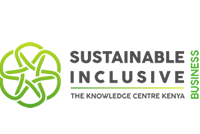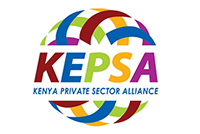The world is at a critical juncture where we must rethink our
South Africa's circular economy
The circular economy is a beacon of hope for South Africa, illuminating a path towards a brighter, more sustainable future. In a land of rich resources and challenges, it offers a promise of waste reduction, green innovation, and economic growth. By reimagining our approach to consumption and production, we can create a South Africa where waste is minimized, resources are cherished, and prosperity is shared. Embracing the circular economy is not just a choice; it's a visionary journey towards a thriving, sustainable nation
"Digital Transformation Drives Circular Economy Revolution"
The world is hurtling towards a future where the demand for raw materials is set to double by 2060. This impending resource crunch is forcing us to reimagine how we use and manage resources. Circular business models, such as recycling, remanufacturing, and product life extension, hold the key to decoupling economic growth from resource consumption and environmental harm. Yet, the adoption of these circular models has been limited due to market failures.
8th Annual Circular Economy Key Discussion Themes
We will highlight specific topics during the conference with innovations, inspiration, information and discussions:
Rethinking Plastic Design
A deep dive into the plastic packaging innovation challenge and the design guidelines for recyclability.
1Circular Agriculture & Food Systems
Zero waste, zero chemicals, the power of indigenous food, local markets and smart water use.
3Circular Creativity
The only way to create new systems and models is to have a different mindset. Creativity is key.
5Africa’s Role in Turning Around Fast Fashion
Recovering, Redesigning textile to textile. Taskforce ambitions and tangible projects that prove how we bring resources back into the loop.
2Digital Access & Device Lifespan
The digital shift is of tremendous help in creating new markets, accessing education, solving global challenges and creating equality.
4Circular Construction
The massive impact of sustainable circular construction on a continent where the population is young and growing – from resources to sustainable and affordable living.
6IoT: Boosting Energy Efficiency
Imagine buildings that use energy efficiently, reducing wastage. Thanks to IoT and smart sensors, this isn't a dream anymore. Real-time data monitoring and analysis enable businesses to identify inefficiencies and optimize energy consumption. For instance, IoT automates processes in buildings, cutting down energy wastage
1Mobile Phones Drive Digital Economy in Africa
Africa's digital economy is surging, driven by widespread mobile phone subscriptions. Digital platforms for waste collection and trading are connecting people and increasing market liquidity. Additionally, information provision technologies enable product tracing and support repair and recycling. DigiYard, for example, connects unused construction materials with small-scale builders, reducing waste.
3Supply Chain Transparency
Digital solutions provide end-to-end visibility and traceability in supply chains, enhancing ethical sourcing and circularity. For instance, AI-driven predictions and automated replenishment in the food retail sector reduce food waste while ensuring stock availability. Surplus food is donated to charities, significantly reducing environmental impact.
53D Printing: Revolutionizing Housing
In South Africa, 3D printing is constructing affordable, sustainable houses at an unprecedented pace. The University of Johannesburg's initiative, while sparking concerns about job losses, reduces construction costs, waste, and carbon emissions. It's a promising solution to the housing crisis, but we need to focus on upskilling and creating a national plan for 3D printing reindustrialization.
2EmptyTrips: Optimizing Cargo Transportation
EmptyTrips, a South African digital platform, tackles underutilized cargo space in transportation. It connects empty or partially filled trucks with businesses needing goods transport. Algorithms match supply and demand for efficient trips, reducing empty truck presence on the road and lowering fuel consumption and emissions.
4Circular Business Models
Digital platforms and technologies enable innovative circular business models. AI aids designers in considering a product's durability, reusability, and reparability. It also plays a crucial role in waste management by enabling autonomous waste sorting, reducing waste and pollution.
6REACH US Event Location
Circular Economy Africa
KEPSA Offices
Mamlaka Road
Shelter Afrique Building, 5th Floor
Registration Info
Phone: +254 716 301 817
Email:karin@sustainableinclusivebusiness.org
Snow Lake Hotel, Brighton, Australia
1Hd- 50, 010 Avenue, NY 90001
Australia
Tickets info
Name: Ronaldo König
Phone: 009-215-5595
Email: info@example.com
Programme Details
Name: Ronaldo König
Phone: 009-215-5595
Email: info@example.com
Brighton Waterfront Hotel, Brighton, London
1Hd- 50, 010 Avenue, NY 90001
United States
Tickets info
Name: Ronaldo König
Phone: 009-215-5595
Email: info@example.com
Programme Details
Name: Ronaldo König
Phone: 009-215-5595
Email: info@example.com
Our Partners

Sustainable Inclusive Business – Kenya (SIB-K) is a neutral initiative established through a fruitful partnership between the Kenya Private Sector Alliance (KEPSA) Foundation and the Embassy of the Kingdom of Netherlands in Kenya.

TheRockGroup (TRG) is an ambitious agency driving the transition towards a sustainable economy and society. We believe that fair and sustainable business can and should accelerate this transition.

KEPSA is the apex organization of the private sector in Kenya. It brings together local and foreign business associations, chambers of commerce, professional bodies, corporates from multinational companies